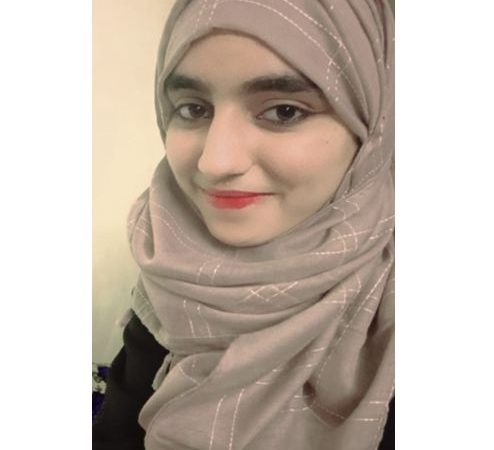Women’s Empowerment in Islamic Perspectives

Maryam Liaqat
Women’s empowerment refers to the process of equipping women with the tools, resources, and opportunities necessary for them to take control of their own lives and make decisions that influence their well-being, as well as the well-being of their families and communities. This includes granting women access to education, healthcare, and economic opportunities, and enabling their participation in political and social life on equal terms with men. Women’s empowerment is crucial as it fosters gender equality, reduces poverty, and enhances overall social and economic development.
Women’s empowerment in Islam is a multifaceted issue that has generated considerable debate and interpretation. While some argue that Islam is inherently patriarchal and oppressive toward women, others contend that the religion can be interpreted in a manner that supports women’s rights and empowerment.One of the fundamental principles often invoked in discussions about women’s empowerment in Islam is the concept of tawhid, which emphasizes the unity of God. Some interpret this principle as the basis for gender equality, as it implies that all human beings are equal in the eyes of God and should be treated accordingly.Another crucial principle relevant to women’s empowerment in Islam is the concept of ijtihad, which entails using reason and independent judgment to interpret Islamic law. Certain scholars assert that this principle can be employed to reexamine traditional Islamic texts and practices in ways that uphold women’s rights and empowerment.
There are numerous examples of Muslim women who have made significant contributions to their communities and societies, both historically and in contemporary times. These women often draw on Islamic principles to support their endeavors, challenging conventional gender roles and stereotypes in the process. Additionally, there are various specific practices and teachings within Islam that can be seen as promoting women’s empowerment. For instance, Prophet Muhammad encouraged women to seek knowledge and education, and numerous Muslim women throughout history have been scholars and educators in their own right.Another example is the concept of hijab, which is frequently misunderstood as a symbol of women’s oppression. In reality, many Muslim women view hijab as a form of empowerment, as it allows them to exert control over their bodies and identities, challenging misconceptions about Muslim women. Similarly, the practice of salah (prayer) can be seen as empowering for women, providing them with a space to connect with God and assert their spiritual and religious identities. Nonetheless, Muslim women face various challenges and obstacles in their pursuit of empowerment, including discrimination, poverty, and limited access to education and resources. Nonetheless, numerous individuals and organizations within the Muslim world are actively working to address these issues and promote women’s rights and empowerment.
Economic empowerment is another crucial aspect of women’s empowerment in Islam. Islam places great emphasis on social justice and wealth redistribution, and many Muslim scholars argue that these principles can be harnessed to support women’s economic empowerment. For instance, the concept of zakat (charity) mandates Muslims to allocate a portion of their wealth to those in need, and some scholars argue that this can be utilized to promote women’s economic independence and entrepreneurship.Likewise, political empowerment holds significant importance in women’s empowerment within Islam. While historical examples demonstrate Muslim women occupying positions of political power, numerous barriers still impede women’s political participation in many Muslim-majority countries. Scholars argue that Islam can be instrumental in supporting women’s political empowerment, as the religion emphasizes social justice, human rights, and the common good. The concept of shura (consultation) is often cited as a foundation for democratic decision-making, with some scholars positing that this principle can be employed to facilitate women’s involvement in politics and governance.
Many Muslim women are actively engaged in promoting political empowerment and participation within their communities and societies. These women challenge traditional gender roles and stereotypes, advocating for increased representation and participation in political decision-making processes. It is essential to acknowledge the vast diversity within the Muslim world, recognizing that women’s experiences of empowerment can vary significantly based on geographical, cultural, and socioeconomic factors. Nonetheless, a growing movement of Muslim women is working collectively to advance women’s rights and empowerment while challenging stereotypes and misconceptions about Islam and Muslim women.Another critical facet of women’s empowerment in Islam is education. The Prophet Muhammad is reported to have emphasized that “seeking knowledge is obligatory on every Muslim, male and female,” and numerous Muslim women throughout history have been scholars and educators in their own right. Nevertheless, barriers to women’s education persist in many Muslim-majority countries, including poverty, limited access to resources, and cultural attitudes regarding women’s roles and responsibilities. Some scholars argue that these obstacles do not stem from Islam itself but rather from patriarchal interpretations of the religion and cultural practices imposed on Muslim societies over time.
Muslim women are actively working to promote education and literacy within their communities and societies. These women challenge traditional gender roles and stereotypes, advocating for greater access to education and resources for girls and women. Education is widely recognized as a crucial tool for women’s empowerment in the Muslim world, as it equips women with the knowledge, skills, and resources needed for full participation in their communities and societies.
I thank to Respected Sir Dr. Muhammad Akram Zaheer for his valuable source of guidance to write this piece. He generously shared his time and knowledge, providing me with valuable feedback and constructive criticism that has significantly improved the quality of my work. His patience, encouragement, and willingness to engage in meaningful discussions have been truly inspiring.
Maryam liaqat
Student of BS Health and Nutrition
University of Okara
maryamkhokhar425@gmail.com
Related News

Pakistan From Isolation to Admiration
By Qamar Bashir It is often said that victory has many fathers, while defeat isRead More

The Indo-Pacific’s Strategic Transition
Dr. Muhammad Akram Zaheer The strategic convergence emerging in the Indo-Pacific signifies a notable transformationRead More


Comments are Closed